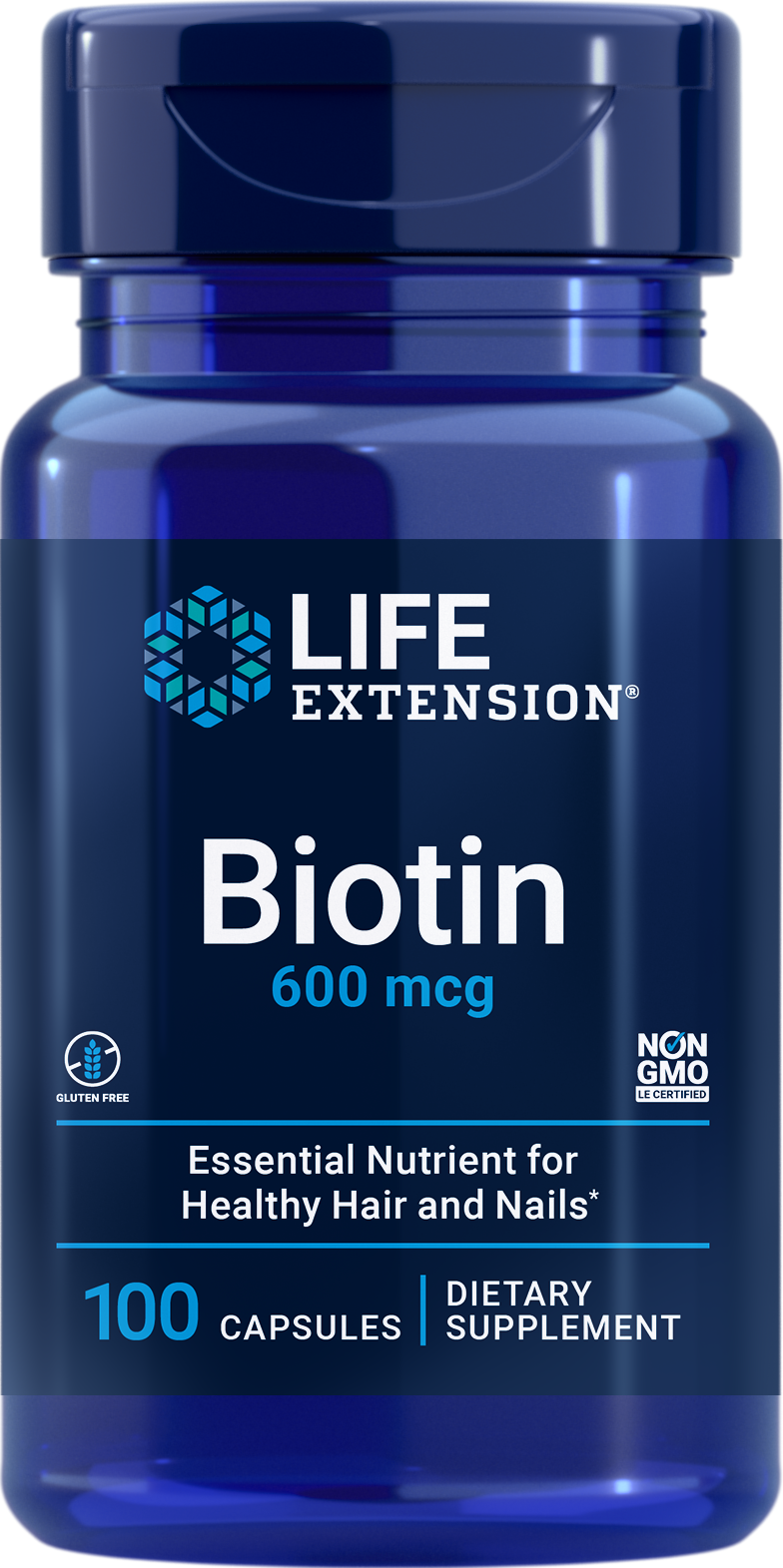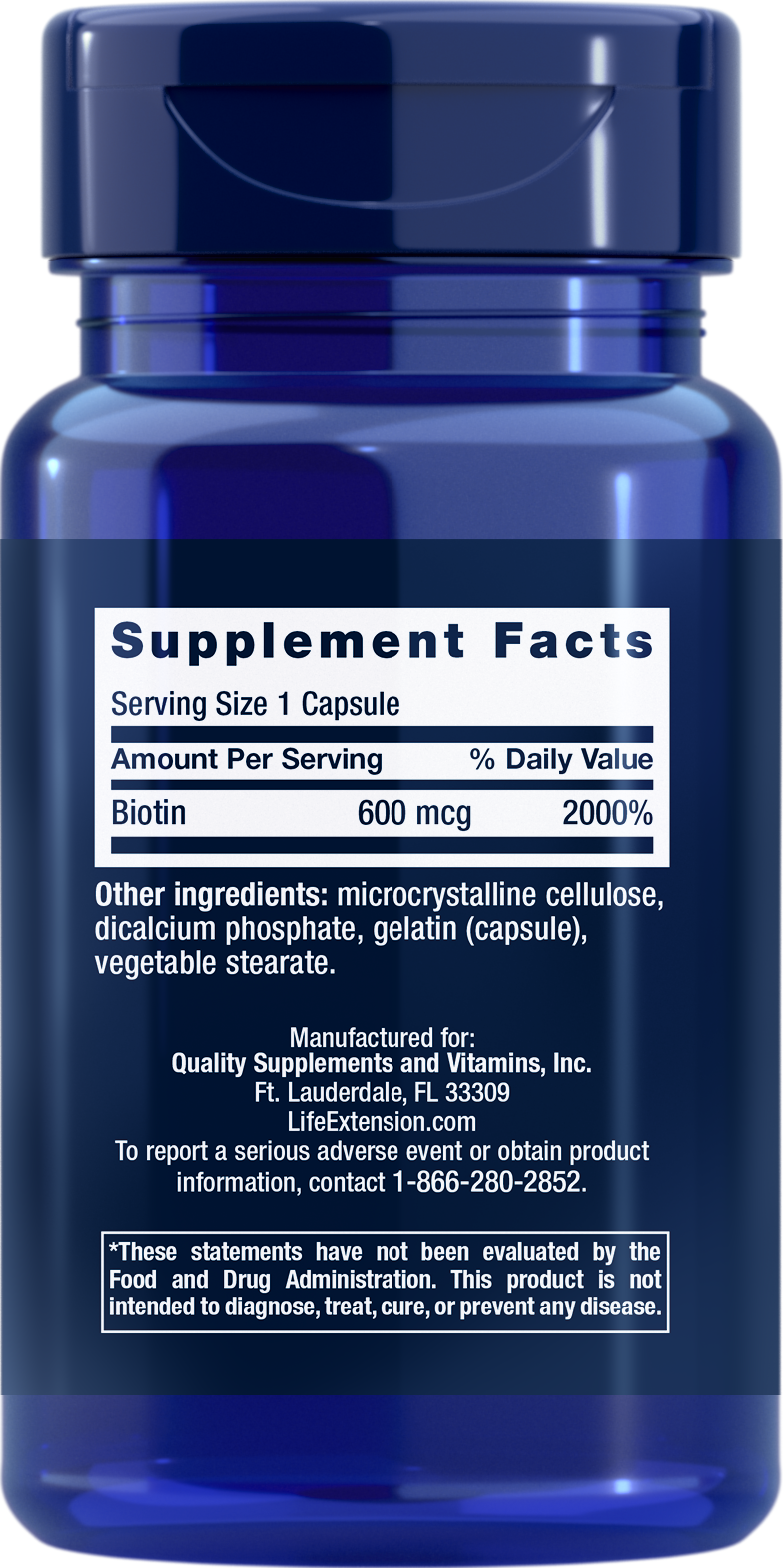Biotin
Supports healthy hair and nails
Biotin
Supports healthy hair and nails
For you, if you are interested in helping produce the structural protein keratin
The nutrient in Biotin can:
- Support healthy hair, skin and nails
- Help maintain cellular energy production
- Encourage healthy gene expression
As we get older, our bodies produce less of the structural proteins that we need to maintain healthy hair, skin, and nails. Biotin can help produce keratin, one of those important proteins.

on orders over € 69
We have a 100 days return policy, not the standard 30 days!
Order before 11:00 CET, for same day shipping (Mon-Fri)
We can help you in 6 languages
Health benefits at a glance:
Biotin, sometimes referred to as vitamin B7, is a member of the water-soluble B-complex family, normally only required in small amounts.
It is essential for healthy skin, hair and nails, supporting healthy hair and nails in people who are deficient.
Why it works:
Biotin is used as a cofactor of enzymes involved in fatty acid metabolism, gluconeogenesis, and amino acid catabolism, and is essential in maintaining internal balance.
It is essential for production of the protein keratin, and can therefore support healthy hair, skin and nails (1-4).
Biotin is also needed for cellular energy production as a cofactor for the TCA-cycle, or Krebs cycle, enzymes (5,6).
A growing body of evidence further suggests biotin may play an important role in gene expression (6 ).
The science behind the product:
Biotin is used as a cofactor in the body, supporting the activities of enzymes involved in fatty acid synthesis, gluconeogenesis (the generation of glucose from non-carbohydrate sources) and amino acid breakdown.
Biotin plays an important role in metabolic functioning as a coenzyme carrier of activated carbon dioxide in the TCA cycle (also known as the Krebs cycle).
In its coenzyme form, biotin synthesises glucose from non-carbohydrate sources, and synthesises and breaks down certain fatty acids and amino acids.
How to use:
It is important to note that biotin supplements can interfere with certain hormone and other lab tests (7,8). Be sure to consult your health care provider if you take supplemental biotin and need lab tests.
Serving size: 1 capsule Servings per container 100 | ||||
| ||||
Ingredients:Microcrystalline cellulose, dicalcium phosphate, gelatin (capsule), vegetable stearate. | ||||
Non-GMO | ||||
Dosage and useTake one (1) capsule daily with meals, or as recommended by a healthcare practitioner. | ||||
Warnings KEEP OUT OF REACH OF CHILDREN. | ||||
A food supplement should not be used as a substitute for a varied and balanced diet and a healthy lifestyle. Store tightly closed in a cool and dry place. | ||||
1. Nutr Clin Pract. 2019
2. J Dermatolog Treat. 2018;29(4):411-414.
3. Dermatol Ther (Heidelb). 2019;9(1):51-70.
4. Skin Appendage Disord. 2017;3(3):166-169.
5. J Inherit Metab Dis. 2019;42(4):647-654.
6. Protein Sci. 2012;21(11):1597-619.
7. Clin Biochem. 2019;65:61-63.
8. Endocr Pract. 2017;23(8):989-998.
Original source/product from Life Extension®




